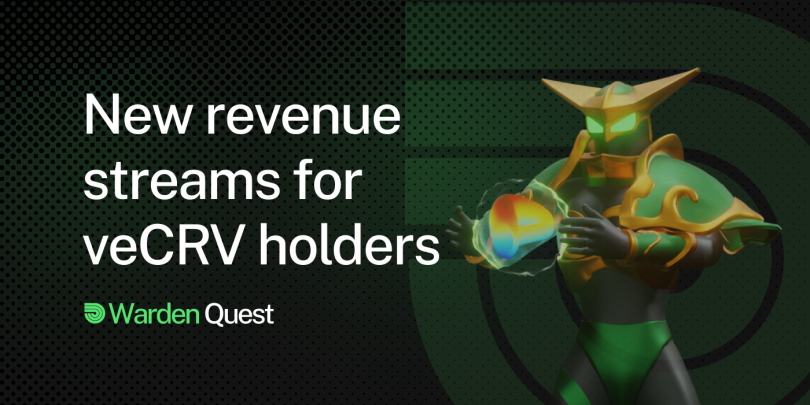As the speculative mania cools down, builders continue to release powerful integrations for some of decentralized finance’s (DeFi) biggest money legos. A decentralized automated market maker (AMM), Curve Finance, has been grabbing headlines, especially after introducing its veCRV tokens, which includes gauge weight voting and rewards-boosting rights, among other features.
The benefits of incentivizing Curve token holders for voting on a specific gauge resulted in new developments within the space. In this article, we will look at Curve Finance and guide readers on how veCRV token holders can easily access new revenue streams with the latest solutions available.
The Curve ecosystem has enjoyed higher voter participation than most other DeFi protocols in large part because of its veCRV locking system. Forcing users to lock, from three months to four years, to access token utility has pushed stakeholders to align. The token itself is distinguished by a clear separation of utilities.
- The first layer is the admin fee-sharing system, which distributes fees in the form of the triple token 3CRV. Essentially, this is a stablecoin.
- The second layer is parameter control or political governance, which controls what the parameters are going to be for protocols and who gets to have a gauge.
- The third layer is gauge weight voting, which controls the emissions. This is akin to a fixed monetary system. What is not fixed is the distribution. Gauge voting allows stakeholders to determine the amount of CRV emissions per gauge.
- The fourth layer is boosting, which is a way for liquidity providers to maximize their CRV rewards up to 2.5 times.
Only by locking CRV and aligning with the protocol can someone access these layers. The stratification also gives the decentralized autonomous organization (DAO) insight into how users are behaving in the system. High participation is generally a strong health factor for any DAO – though it can look different among stakeholders, because users can exercise their token rights directly, delegate them or even sell them in specialized DeFi markets.
For example, decentralized governance lending protocols, such as Paladin, allow users to sell their token rights to more active governance participants. Such innovative solutions minimize friction for governance activities while increasing the rewards for both passive and active token holders. Paladin has driven this solution in a greater mission to strengthen decentralized governance through participation rather than just pure speculation. Curve’s veCRV is a locked token that requires a custom system to accommodate its design. As a result, the Paladin team released a new solution this year, called Warden. Warden is a noncustodial market that allows veCRV holders to sell their boosting rights as well as their gauge vote by using its latest feature, Quest.
DeFi projects have been extremely creative in trying to attract veCRV voters to vote for their gauge, and Quest as a product was designed to meet these needs. However, it represents an even more attractive solution for veCRV holders. Quest gives lucrative opportunities to gauge voters with rewards from a range of DAOs, including Paladin, Threshold Network, StakeDAO and Alchemix Finance. With more projects aiming for Curve gauges, this list will continue to grow.
As for a voter, the process of accessing new revenue streams is straightforward: DeFi projects that need more CRV emissions create a Quest with a target objective for the number of votes they need. As long as that number is not filled, any veCRV holder can direct their vote to the Quest and earn rewards for the entire duration of the Quest, which can last several weeks. Rewards can be accumulated and claimed at any time through the Warden dapp. The product tutorial video can be found here.
Starting with a specific kind of DeFi token, the Paladin team continues introducing innovations, such as Warden and Quest, to carry the DAO’s mission into the wider ecosystem. Paladin strongly believes that efficient and sustainable governance will be key for DeFi’s continual success, and the team is committed to ensuring that all decentralized governors have access to the tools they need to keep the space resilient and dynamic.More information about Paladin and Warden can be found at paladin.vote.
DISCLOSURE
Please note that our privacy policy, terms of use, cookies, and do not sell my personal information has been updated.
The leader in news and information on cryptocurrency, digital assets and the future of money, CoinDesk is a media outlet that strives for the highest journalistic standards and abides by a strict set of editorial policies. CoinDesk is an independent operating subsidiary of Digital Currency Group, which invests in cryptocurrencies and blockchain startups. As part of their compensation, certain CoinDesk employees, including editorial employees, may receive exposure to DCG equity in the form of stock appreciation rights, which vest over a multi-year period. CoinDesk journalists are not allowed to purchase stock outright in DCG.


